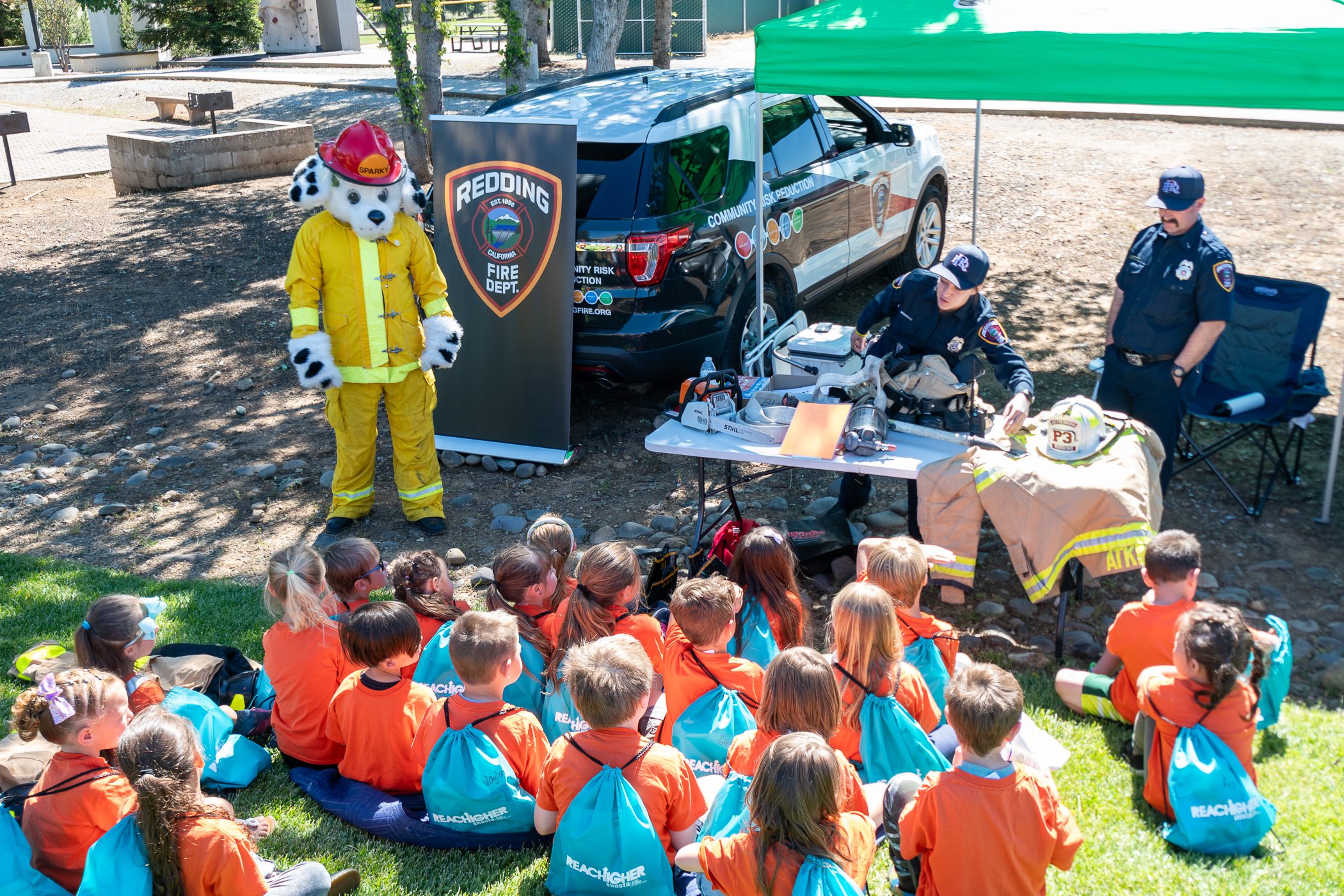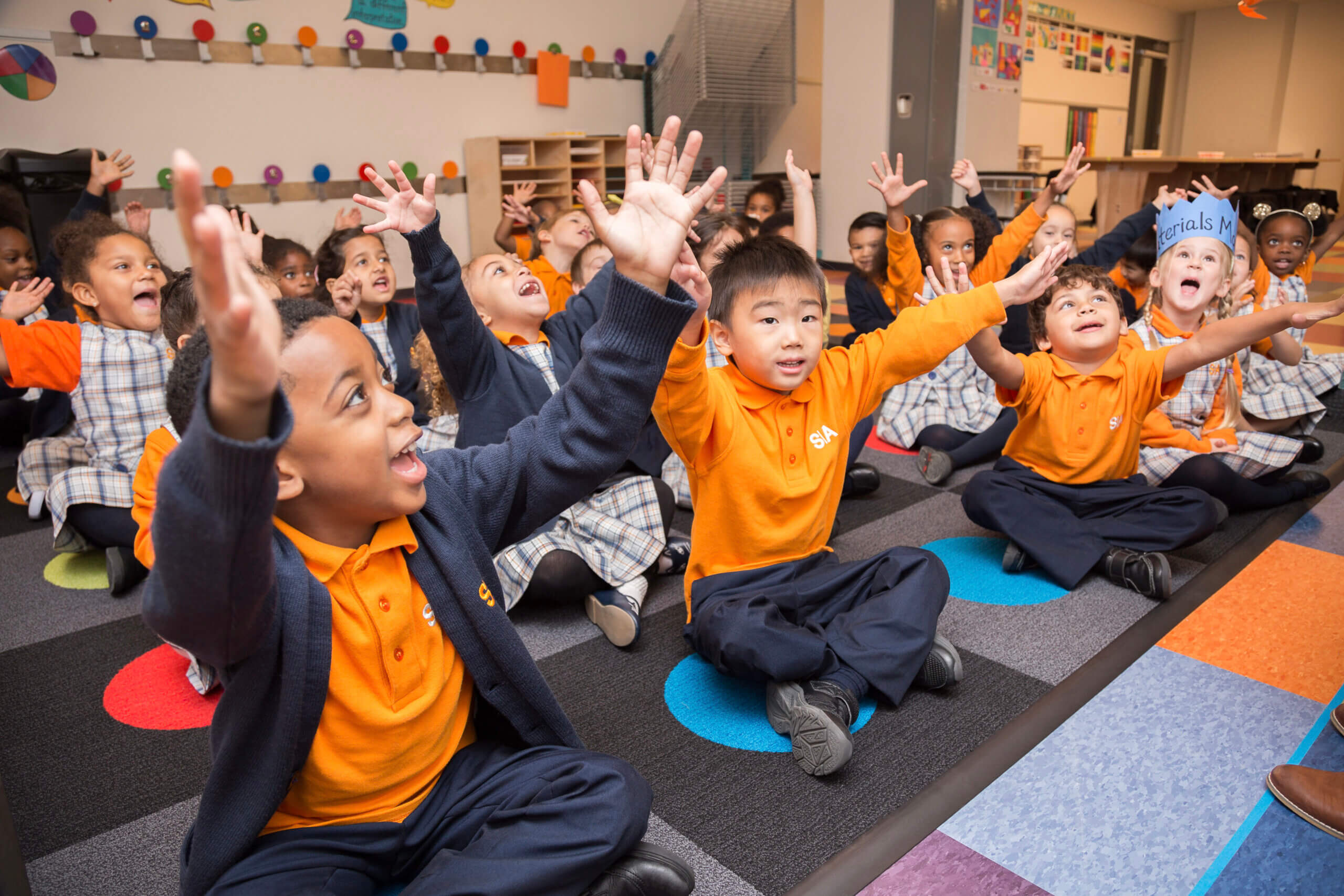The benefits of interactive technology in Private Grade School Peoria
Wiki Article
Everything About Quality College: Essential Facts and Enhancing Experiences for Youthful Learners
Grade college plays an essential role fit young students' futures. It encompasses crucial academic topics and supports social abilities with structured interactions. In addition, extracurricular tasks offer possibilities for creativity and team effort. Parental participation further boosts this foundation, supporting children in their academic trips. As these aspects intertwine, they produce a comprehensive educational experience. Nonetheless, what particular strategies can teachers and moms and dads utilize to optimize this development?
Recognizing the Grade Institution Educational Program
As trainees commence their grade school journey, they come across an educational program made to build foundational skills and understanding throughout various topics. This educational program commonly encompasses core areas such as maths, language arts, science, and social researches. Each topic is structured to cultivate vital reasoning, creative thinking, and analytical capabilities, vital for future academic success.Language arts concentrate on analysis, creating, and communication skills, cultivating students' capacity to express themselves plainly. Math introduces basic principles, consisting of enhancement, reduction, and later on, multiplication and division, laying the groundwork for much more intricate analytic. Science motivates questions and exploration, sparking interest concerning the all-natural globe, while social studies imparts an understanding of area and multiculturalism.
Along with core topics, the educational program typically consists of arts and physical education, giving a well-rounded educational experience that promotes both intellectual and physical advancement. Quality institution offers as an essential system for lifelong discovering.
The Framework of Quality College Education
While elementary school education varies by region and institution, it usually adheres to a structured framework that advertises dynamic discovering. Commonly, quality institution encompasses a range of qualities, usually from preschool via fifth or sixth quality, depending upon the instructional system. Each quality degree matches to certain developmental milestones, with educational program designed to construct upon anticipation.Courses are generally arranged into core subjects, consisting of mathematics, language arts, science, and social researches, guaranteeing that trainees receive a versatile education and learning. Instruction usually integrates straight teaching with hands-on tasks, cultivating involvement and essential reasoning.

Analysis techniques differ but typically include projects, quizzes, and examinations to evaluate pupil understanding. Additionally, educators usually team up to create interdisciplinary units, boosting the finding out experience. Generally, the structure of elementary school education and learning aims to cultivate foundational skills, prepare pupils for future academic obstacles, and promote a love for learning that prolongs past the class.
Social Abilities Growth in Early Learners
Grade institution education and learning not just concentrates on academic abilities yet additionally plays a significant duty in the advancement of social abilities among early learners. During these developmental years, kids take part in numerous activities that urge communication, cooperation, and communication with peers. Group projects and cooperative discovering setups give chances for children to exercise sharing, working out, and fixing disputes.Organized play fosters essential abilities like empathy and understanding, as children discover to identify and respond to the sensations of others. Via guided social interactions, educators help pupils develop crucial listening and conversational skills. As Learn More children browse relationships and group characteristics, they acquire confidence in their social capabilities.
The Function of Extracurricular Activities
After-school activities play a considerable duty in improving the instructional experience of elementary school trainees by providing opportunities for personal development beyond the class. These activities allow trainees you can try this out to explore passions and abilities, cultivating creativity and self-expression. Participation in sporting activities, songs, art, and clubs cultivates teamwork, leadership skills, and a sense of belonging.Engaging in such tasks promotes physical health and wellness, encouraging pupils to maintain an energetic way of life. Extracurricular programs also act as a platform for students to construct friendships and create social skills, which are important for their overall growth
As students browse their interests beyond academics, they acquire valuable experiences that add to their self-esteem and resilience. Inevitably, these activities play a crucial role in shaping well-rounded people, preparing them for future obstacles both in and out of the class.
Supporting Understanding With Adult Involvement
Adult participation greatly enhances the academic journey of elementary school trainees, as it cultivates a helpful setting that strengthens discovering. Involved moms and dads add to their children's scholastic success by participating in school occasions, aiding with research, and keeping open interaction with instructors. Private School. This involvement not just enhances students' motivation yet likewise grows a sense of belonging and self-confidenceResearch study indicates that children whose parents are actively entailed often tend to have greater qualities, far better participation, and boosted behavior in school. Additionally, parental engagement encourages the growth of important life skills, such as time monitoring and obligation.
Schools can promote this involvement by hosting workshops, offering sources, and encouraging routine comments. By developing partnerships between educators and moms and dads, elementary school can ensure a detailed method to pupil growth. Eventually, parental participation works as a keystone for promoting a favorable educational experience, benefiting both students and the institution area overall.
Often Asked Inquiries
What Are the Typical Elementary School Hours for Pupils?
Regular grade school hours for pupils typically range from 8:00 AM to 3:00 PM, varying by area. Several institutions include a lunch break and recess, making certain students have time to reenergize throughout the day.Just How Do Grade Schools Address Diverse Learning Demands?
Elementary school address varied learning needs through distinguished guideline, tailored lesson plans, and support services, making certain all students obtain appropriate resources. Teachers collaborate with experts to create inclusive atmospheres that promote individual development and interaction.What Is the Role of Technology in Grade College Education?
Innovation in quality institution education and learning boosts learning through interactive tools, individualized learning experiences, and access to large sources. It fosters collaboration among teachers and pupils, preparing youngsters for a technology-driven future while sustaining diverse academic requirements.How Can Parents Assist With Homework Efficiently?
Parents can aid with research successfully by developing a structured setting, encouraging independence, supplying sources, and providing support without straight offering answers. Communication with teachers also enhances understanding of expectations and advertises academic useful site success.What Prevail Difficulties Faced by Grade School Pupils?
Common challenges faced by grade school pupils include difficulty with time management, understanding complex principles, keeping emphasis during lessons, maneuvering social characteristics, and balancing scholastic duties with after-school activities, all of which can impact their total efficiency.As students start their quality institution journey, they run into a curriculum designed to develop fundamental abilities and understanding throughout different topics. Usually, grade school incorporates a range of qualities, usually from preschool via 5th or sixth quality, depending on the academic system. Extracurricular activities play a significant duty in enhancing the academic experience of quality school pupils by supplying avenues for individual development beyond the class. Parental participation substantially enhances the academic trip of grade college students, as it cultivates an encouraging setting that reinforces understanding. By creating collaborations in between moms and dads and instructors, quality institutions can ensure a comprehensive approach to pupil advancement.
Report this wiki page